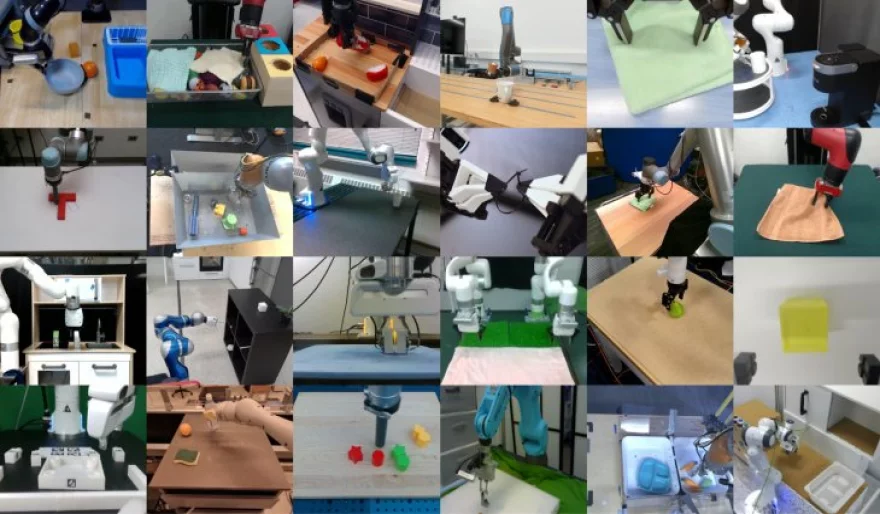Stay Ahead of the Curve
Latest AI news, expert analysis, bold opinions, and key trends — delivered to your inbox.
Google's DeepMind introduces Open X-Embodiment: Unlocking the Potential of General-Purpose Robots with Robot Learning
8 min read Robot learning is transforming robotics! Google's DeepMind introduces Open X-Embodiment, a game-changing dataset for creating versatile robots. ? Unlocking the potential of general-purpose robots! October 09, 2023 07:01
Robot learning is one of the holy grails of robotics. It is the key to developing general purpose robots that can do a variety of tasks, rather than just one or two.
There are a number of different approaches to robot learning, but one of the most promising is to use a large, shared dataset of robot demonstrations. This is the approach that Google's DeepMind robotics team has taken with its new dataset, Open X-Embodiment.
Open X-Embodiment contains more than 500 skills and 150,000 tasks pulled from 22 different robot types. It is the largest and most diverse dataset of robot demonstrations ever created.
The DeepMind team believes that Open X-Embodiment will help to accelerate research on general purpose robotics. By making the dataset available to the research community, they are hoping to enable researchers to learn from each other and to develop new and innovative robot learning algorithms.
Why is robot learning important?
Robot learning is important because it will allow us to develop robots that can be used in a wider range of applications. For example, a general purpose robot could be used to assemble products in a factory, to deliver packages in a city, or to provide assistance to people in their homes.
Robot learning will also allow us to develop robots that are more robust and adaptable. A robot that can learn from its own experience will be able to better handle unexpected situations and to adapt to new environments.
What are the challenges of robot learning?
One of the biggest challenges of robot learning is that it requires a lot of data. To train a robot to perform a task, you need to provide it with many examples of how to do the task. This can be time-consuming and expensive to collect.
Another challenge of robot learning is that it can be difficult to generalize from one task to another. For example, a robot that has been trained to pick up a ball may not be able to pick up a cup if it has never seen a cup before.
How can we overcome the challenges of robot learning?
One way to overcome the challenges of robot learning is to use a large, shared dataset of robot demonstrations. This will allow researchers to train robots on a wider range of tasks and to develop algorithms that can generalize better.
Another way to overcome the challenges of robot learning is to develop new machine learning algorithms that are specifically designed for robotics. Researchers are working on a number of different approaches, such as reinforcement learning and imitation learning.
Conclusion
Robot learning is a challenging but important area of research. By developing new algorithms and collecting large datasets of robot demonstrations, we can accelerate the development of general purpose robots that can be used in a wider range of applications.
The Open X-Embodiment dataset is a significant step forward in the field of robot learning. It is the largest and most diverse dataset of robot demonstrations ever created, and it is freely available to the research community.
I hope that this blog post has helped you to understand the importance of robot learning and the challenges that need to be overcome.



















 AI Agents
AI Agents